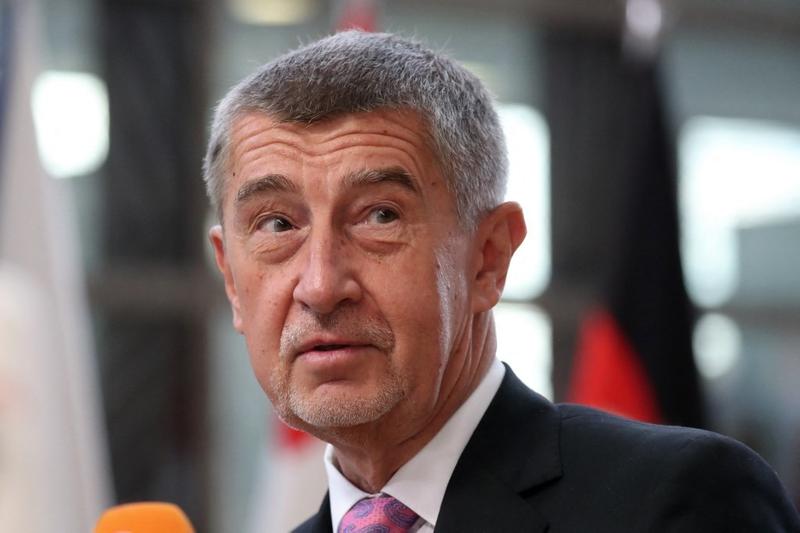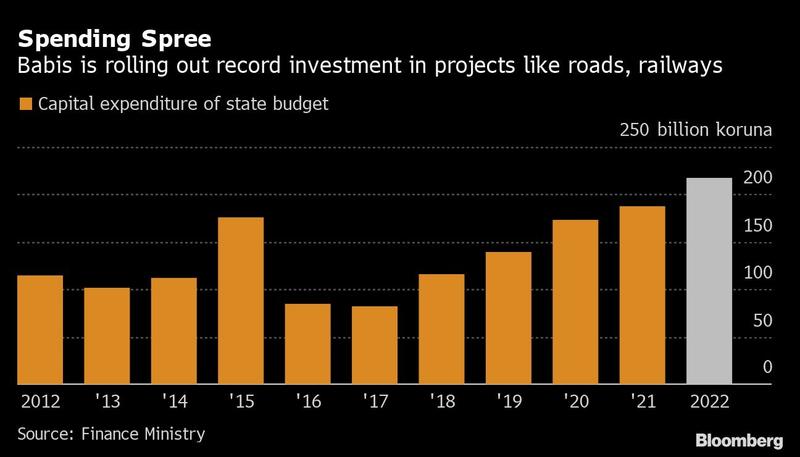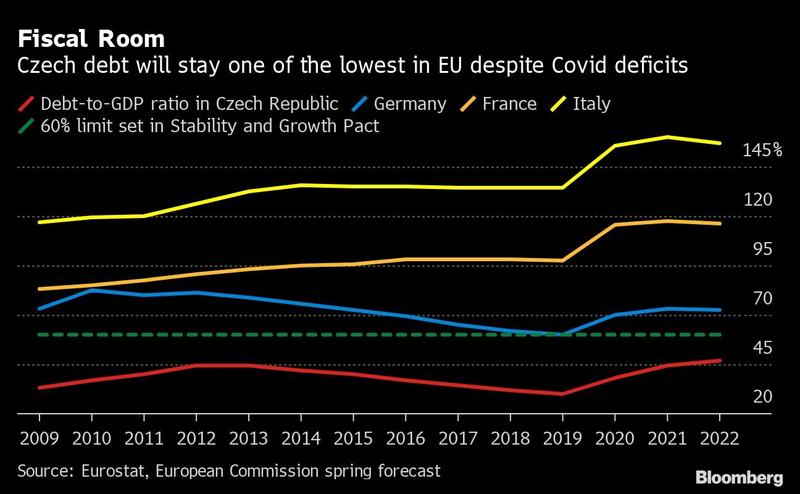 In this file photo taken on Feb 21, 2020 Czech Republic's Prime Minister Andrej Babis addresses media representatives as he arrives for the second day of a special European Council summit in Brussels, held to discuss the next long-term budget of the European Union. (ARIS OIKONOMOU / AFP)
In this file photo taken on Feb 21, 2020 Czech Republic's Prime Minister Andrej Babis addresses media representatives as he arrives for the second day of a special European Council summit in Brussels, held to discuss the next long-term budget of the European Union. (ARIS OIKONOMOU / AFP)
He’s fighting off fraud accusations tied to his business empire, revelations from the Pandora Papers and anger over his COVID response, but billionaire Andrej Babis is sticking with a simple strategy to win this week’s elections: Give voters money.
The one-term prime minister is breaking with his nation’s long tradition of fiscal conservatism in which parties have won over debt-fearing Czechs with promises to cut budget deficits. Now after raising pension payments and public wages since he took power in 2017, his ANO party is widely favored to win the vote this Friday and Saturday.
His supporters are overlooking the legal challenges — which Babis rejects as politically-motivated attacks — and a pandemic response that saw one of the highest mortality rates in the world. He also dismissed on Monday a Pandora Papers report that he bought a French villa via offshore companies as baseless.
As allies, he can count many Czech retirees, whose pensions have jumped by almost 40 percent under Babis
ALSO READ: Czech PM denies wrongdoing after report says he used offshore firms
As allies, he can count many Czech retirees, whose pensions have jumped by almost 40 percent under Babis. What’s more, they represent a quarter of voters in the country of 10.7 million and are his largest group of supporters.

“For as long as we are in government, we’ll keep going,” Babis said last month. “We’ll be raising salaries and pensions.”
When he first took power, Babis ran fiscal surpluses or near-balanced budgets. After the COVID-19 pandemic hit, he boosted borrowing to shield businesses and protect jobs. He also opened the taps on unprecedented investment into everything from highways to hospitals and schools, largely neglected under previous governments.
Next year’s budget projects record capital spending, with a planned deficit of 377 billion koruna ($17 billion). That compares with an expected 400 billion koruna gap in 2021 and matches the 2020 result, both years marked by massive COVID relief programs.

Upgrading roads and the railway network has been Babis’s goal since he took power. He’s boosted spending on transport infrastructure to about $6 billion planned for next year, a jump by about 60 percent from 2020.
ALSO READ: Czech government survives no-confidence vote ahead of poll
The approach is a dramatic departure from the Czechs’ history of budget conservatism. A decade ago, warnings that the country risked spiraling toward a Greek-style debt crisis propelled fiscal hawks to power with austerity policies that contributed to the longest Czech recession on record.

Babis argues the country’s debt as a share of the economy will remain one of the EU’s lowest, but his deficit plans have drawn censure from the central bank and the independent budget watchdog. Their criticism has focused mainly a $5 billion income-tax cut approved in December, which is helping mostly higher earners.
“We are practically the only country in the EU that’s undermining its consolidation with tax cuts,” Eva Zamrazilova, the head of the fiscal council and a former central bank board member, said on Sept 19.
READ MORE: Billionaire Czech PM faces possible fraud charge


